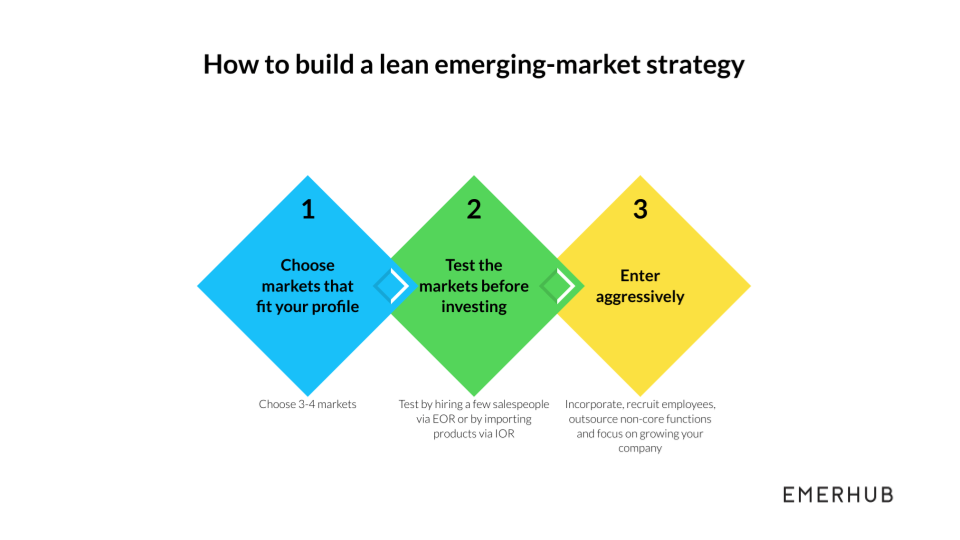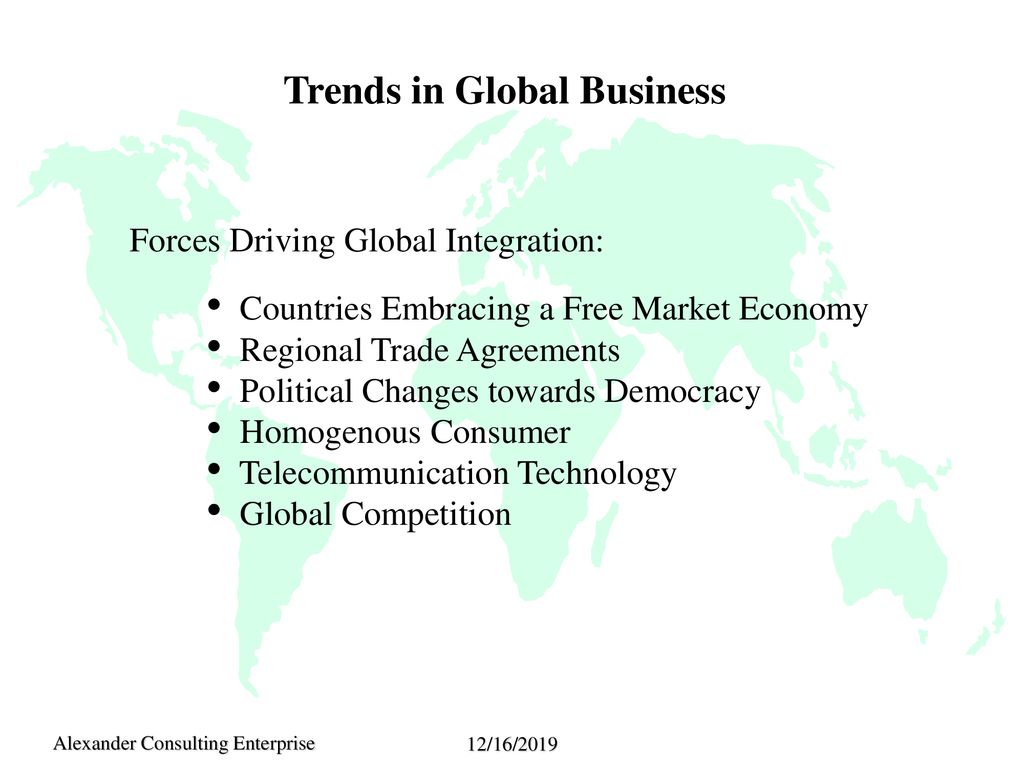Embark on a journey into the realm of Scalable Business Strategies for Emerging Markets, where opportunities abound and challenges await. This topic delves into the essential strategies needed to thrive in dynamic and evolving market landscapes.
Importance of Scalable Business Strategies
Scalable business strategies play a crucial role in the success of companies looking to expand into emerging markets. These strategies are designed to grow and adapt as the business expands, allowing for efficient and sustainable growth in new and dynamic environments.
Examples of Successful Implementation
- Uber: Uber's ride-sharing platform is a prime example of a scalable business strategy in emerging markets. By leveraging technology and local partnerships, Uber was able to quickly expand its services to multiple countries, adapting to local regulations and preferences.
- Amazon: Amazon's e-commerce platform has successfully penetrated emerging markets by implementing scalable logistics and delivery networks. This adaptability has allowed Amazon to reach customers in remote areas and compete effectively with local retailers.
- Netflix: Netflix's content streaming service has also demonstrated the importance of scalable strategies in emerging markets. By offering a diverse range of content and adapting pricing models to local markets, Netflix has been able to attract a large subscriber base in various countries.
Understanding Emerging Markets

Emerging markets refer to countries that are experiencing rapid economic growth and industrialization, often transitioning from a developing to a developed nation. These markets present unique challenges and opportunities due to their evolving nature and dynamic business environments.
Key Factors for Developing Strategies in Emerging Markets
When entering emerging markets, it is crucial to consider several key factors to ensure the success of your business strategies:
- Market Research: Conduct thorough market research to understand the local culture, consumer behavior, regulatory environment, and competitive landscape.
- Adaptability: Be prepared to adapt your products, services, and marketing strategies to suit the specific needs and preferences of the target market.
- Infrastructure: Evaluate the infrastructure of the emerging market, including transportation, communication, and logistics, to ensure smooth operations.
- Partnerships: Form strategic partnerships with local businesses, government entities, or other stakeholders to navigate the market more effectively.
- Risk Management: Develop contingency plans and risk management strategies to mitigate potential challenges such as political instability, currency fluctuations, or regulatory changes.
Tailoring Business Strategies
In order to succeed in emerging markets, businesses need to adapt their existing strategies to meet the unique dynamics and challenges of these regions. This involves customizing approaches to suit the local culture, consumer behavior, regulatory environment, and infrastructure constraints.
Adapting Marketing Strategies
- Companies like Coca-Cola have successfully tailored their marketing strategies in emerging markets by focusing on affordability and accessibility. They offer smaller packaging sizes at lower price points to appeal to price-sensitive consumers.
- Unilever is another example of a company that has adapted its marketing strategies by launching products specifically designed for emerging market consumers. They have introduced products with local flavors and ingredients to cater to regional preferences.
Customizing Distribution Channels
- Amazon has customized its distribution channels in emerging markets by partnering with local delivery services and setting up fulfillment centers closer to urban areas. This has allowed them to overcome logistical challenges and reach a wider customer base.
- McDonald's is known for customizing its distribution channels by incorporating home delivery services in emerging markets where food delivery is a popular option. This has helped them increase sales and enhance customer convenience.
Market Research and Analysis

Market research is a crucial step before implementing scalable strategies in emerging markets. It provides valuable insights into consumer behavior, market trends, competition, and potential risks. By conducting thorough research, businesses can make informed decisions and tailor their strategies to the specific needs of the market.
The Importance of Thorough Market Research
Before entering an emerging market, it is essential to gather as much information as possible to understand the dynamics at play. This includes demographic data, cultural nuances, regulatory environment, and competitive landscape.
- Conducting surveys and focus groups to gather direct feedback from potential customers.
- Utilizing data analytics tools to analyze market trends and consumer preferences.
- Studying reports and publications related to the industry and market conditions.
- Engaging with local experts or consultants who have knowledge of the market.
Methods and Tools for Market Analysis
There are various methods and tools available to conduct market analysis in emerging markets, each offering unique advantages and insights.
- SWOT analysis: Assessing the strengths, weaknesses, opportunities, and threats of entering a new market.
- PESTEL analysis: Examining the political, economic, social, technological, environmental, and legal factors impacting the market.
- Competitor analysis: Studying the strategies and performance of competitors to identify gaps and opportunities.
- Market segmentation: Dividing the market into distinct groups based on demographics, behaviors, or needs.
Technology and Innovation
Technology and innovation play a crucial role in developing scalable business strategies for emerging markets. By leveraging the latest advancements in technology and implementing innovative approaches, companies can overcome challenges and capitalize on opportunities in these dynamic markets.
Mobile Technology
- Mobile technology has been a game-changer in emerging markets, providing access to a wide range of services and products through smartphones.
- Companies can develop mobile apps or mobile-friendly websites to reach a larger audience and facilitate seamless transactions.
- Mobile payment solutions have also revolutionized the way businesses operate in emerging markets, enabling faster and more convenient payment methods for customers.
Blockchain Technology
- Blockchain technology offers secure and transparent transactions, which is particularly beneficial in markets where trust and security are major concerns.
- Implementing blockchain solutions can help companies build trust with customers and partners, leading to increased business opportunities and growth.
- Smart contracts powered by blockchain technology can automate processes and reduce operational costs, making businesses more efficient and competitive in emerging markets.
Internet of Things (IoT)
- IoT devices enable businesses to collect and analyze data in real-time, allowing for better decision-making and personalized customer experiences.
- In emerging markets, IoT technology can be used to improve supply chain management, optimize resource utilization, and enhance overall operational efficiency.
- By leveraging IoT solutions, companies can stay ahead of the competition and adapt quickly to changing market conditions, driving sustainable growth in emerging markets.
Partnerships and Collaborations
Forming strategic partnerships is crucial in scaling business operations in emerging markets. By collaborating with local entities or other businesses, companies can leverage their expertise, resources, and networks to navigate the unique challenges of these markets and drive growth. Successful partnerships can help businesses access new markets, technologies, and talent, ultimately leading to increased competitiveness and sustainability.
Examples of Successful Collaborations
- One notable example of a successful collaboration in an emerging market is the partnership between a global technology company and a local telecommunications provider in Africa. By combining their strengths, the companies were able to develop innovative mobile payment solutions tailored to the needs of the local population, driving financial inclusion and market penetration.
- Another successful collaboration took place between a multinational consumer goods company and a local distributor in Southeast Asia. By working together, the companies were able to adapt their products to local preferences, optimize distribution channels, and implement effective marketing strategies, resulting in significant sales growth and brand recognition in the region.
- Additionally, a partnership between a renewable energy company and a government agency in Latin America led to the successful implementation of sustainable energy projects in remote communities. Through shared resources and expertise, the collaboration not only provided clean energy solutions but also created economic opportunities and improved living standards in the region.
Summary
In conclusion, Scalable Business Strategies for Emerging Markets offer a roadmap for success in untapped territories. By adapting, innovating, and strategizing effectively, businesses can unlock immense growth potential in these burgeoning markets.
FAQ Resource
What makes scalable business strategies crucial for entering emerging markets?
Scalable strategies allow businesses to adapt and grow efficiently in diverse and evolving market environments, ensuring sustainability and success.
How can companies tailor their business strategies for emerging markets effectively?
Businesses can customize their approaches by understanding local dynamics, cultural nuances, and consumer behaviors to create strategies that resonate with the target audience.
Why is market research vital before implementing scalable strategies in emerging markets?
Thorough market research provides insights into market trends, consumer preferences, and competitor landscapes, guiding businesses in making informed decisions for successful expansion.
What role does technology play in developing scalable business strategies for emerging markets?
Technology acts as a catalyst for innovation, enabling businesses to streamline operations, reach wider audiences, and stay ahead of the competition in emerging markets.



